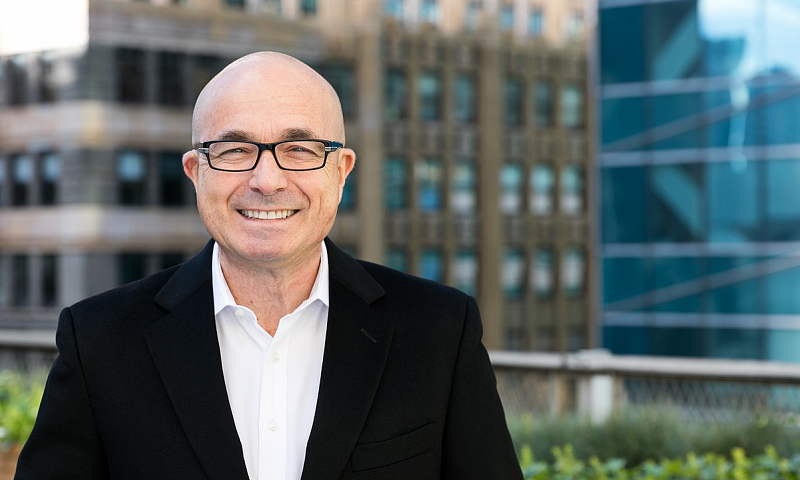From a business perspective, Ovid Therapeutics is walking away from its lead candidate OV101 in Angelman syndrome in fine shape, with a long cash runway thanks to a deal with Takeda signed months earlier.
But that doesn’t mean it was easy for CEO Jeremy Levin to abandon the once promising medicine.
“It’s heart-rending. You have teams here. You link to and you understand the families. You understand what it means to them,” he said in an interview. “They have many anecdotes about how the drug helped them, but you must look at data.”
And those data were not good.
Even after gathering significant evidence in a mixed bag of a phase 2 trial and creating new endpoints specific to Angelman syndrome, OV101 failed to beat placebo in a late-stage study. Angelman syndrome causes a number of neurological symptoms varying in severity including seizures, trouble sleeping and problems with movement or balance.
“I believe very firmly: You either are going to fundamentally change their lives with the drug, or you’re not,” Levin said. “And if you’re not going to do that, and you have the resources to do something else … it’s best to invest that money wisely then in other areas.”
Which brings this story to the financing. Ovid handed the rights to a drug called soticlestat back to Takeda in March following a development agreement between the two companies that saw the epilepsy therapy move successfully through phase 2. Closing of the deal netted Ovid $196 million upfront and a further $660 million in milestone payments further down the road.
“Financing was removed from the table,” Levin said, which allowed the company to cut its losses on OV101 and shift focus to earlier pipeline assets.
Ovid’s work to define clinical endpoints for Angelman syndrome during that ill-fated phase 2 was not in vain. Once the FDA gave the goals a thumbs-up, at least 14 other companies began moving drugs into the pipeline for the disorder.
Levin and his team will remain in the game, too, because the company had “quietly and without too much fuss” built up an early stage pipeline of genetically focused CNS drugs, including one for Angelman syndrome.
“We felt everything we had learned about the field of CNS is that it’s going to explode. It’s at a cusp,” Levin said, likening it to immuno-oncology a decade ago. “We’re seeing the same pivot today in neurosciences.”
Ovid expects to be a leading neuroscience company in that race, with plans to file for three INDs over the next three years. Shortly after announcing plans to drop OV101, the company also said renowned Massachusetts Institute of Technology Professor Robert Langer, Sc.D., would be joining the scientific advisory board. The arrangement had been in the works for weeks.
Levin said the company was looking for advisers who understood the fundamental science and were “bold enough” to tackle neuroscience and ask difficult questions along the way. Langer is a legend at MIT, where he researches drug delivery methods, biotechnology and immobilized enzymes. He was the perfect fit for Ovid’s next act and agrees with Levin on where neuroscience is heading.
“The neurosciences are on the cusp of a scientific and, hopefully, therapeutic revolution. Ovid has an exciting approach to tackling the key questions that drive scientific research and new medicines in the central nervous system,” Langer said in a statement. “I am delighted to lead their scientific advisory board and look forward to helping drive advances in this important area.”
Levin also has an aggressive business development plan—using that Takeda cash—that could bring in some new targets, companies or other deals.
“We’re very active. We’re looking very aggressively, very thoughtfully,” Levin said. “The question is, what matches the skills of the company and the mission, which is neurosciences?”
The original Takeda deal itself was strange, with the larger company actually licensing out development of a drug to the smaller one. These deals tend to be the other way around. Levin said “quite a number” of other large companies have come knocking asking about similar arrangements with assets they are stumped on.
“Sometimes we’re interested, sometimes we’re not,” Levin said. “The reality is, it’s all a question of how good are those assets. What do we think that we can do with them in our hands that somebody else who is good as well didn’t do.”
With all these possibilities buzzing in the background, Ovid still has its three pipeline products: OV329 for seizures associated with tuberous sclerosis complex and infantile spasms, OV882 in Angelman syndrome and OV815 in KIF1A associated neurological disorder.
Levin has no plans to abandon ship now, crediting his board, the company’s staff and Langer’s fresh eyes for making the job worthwhile.
“I have no lack of energy,” Levin said. “We haven’t solved the problems of the brain, and I’m sticking close while we solve the problems of the brain.”

